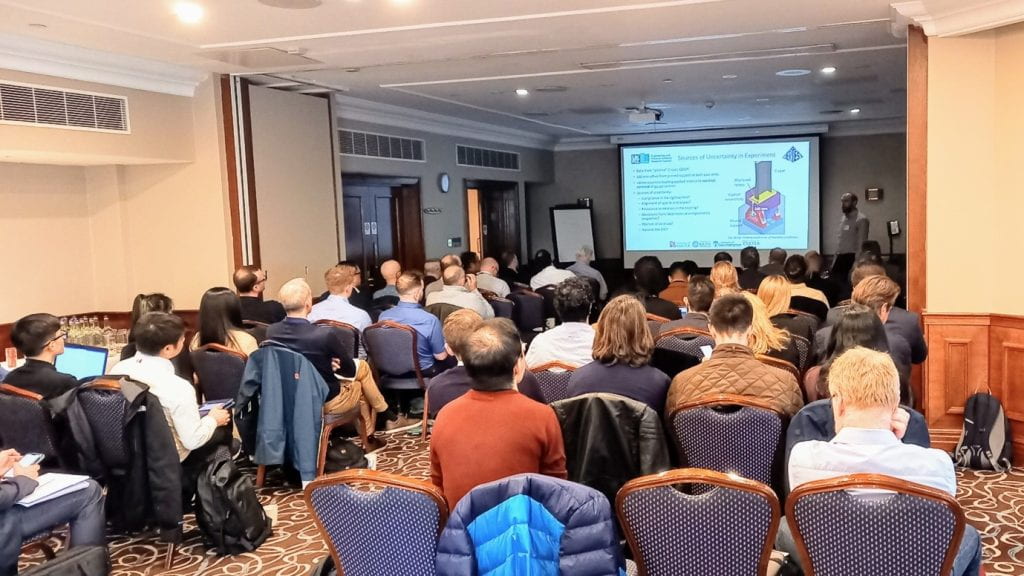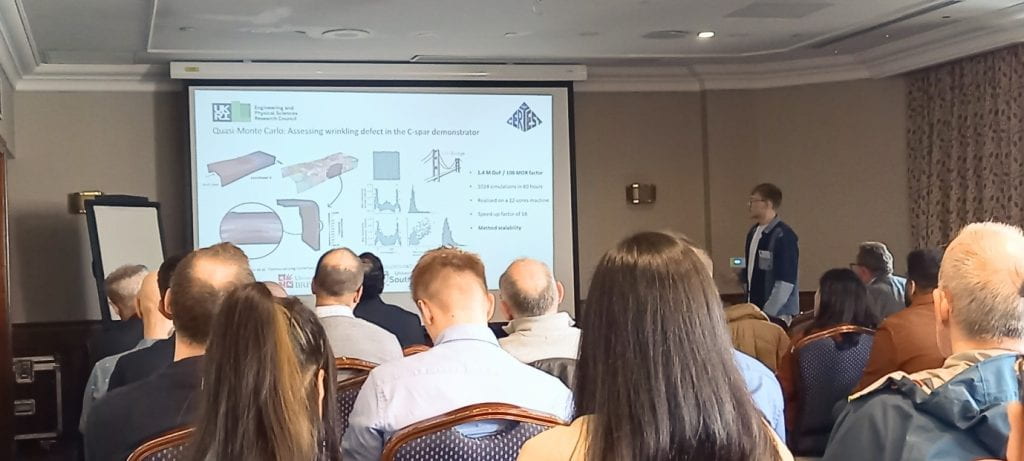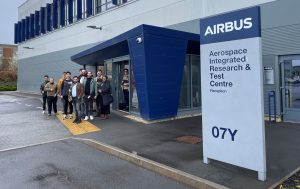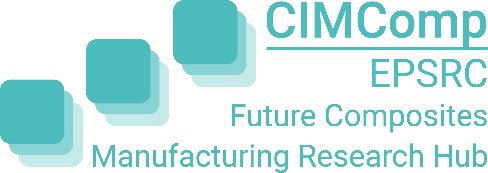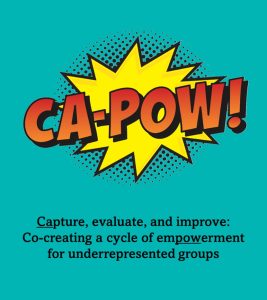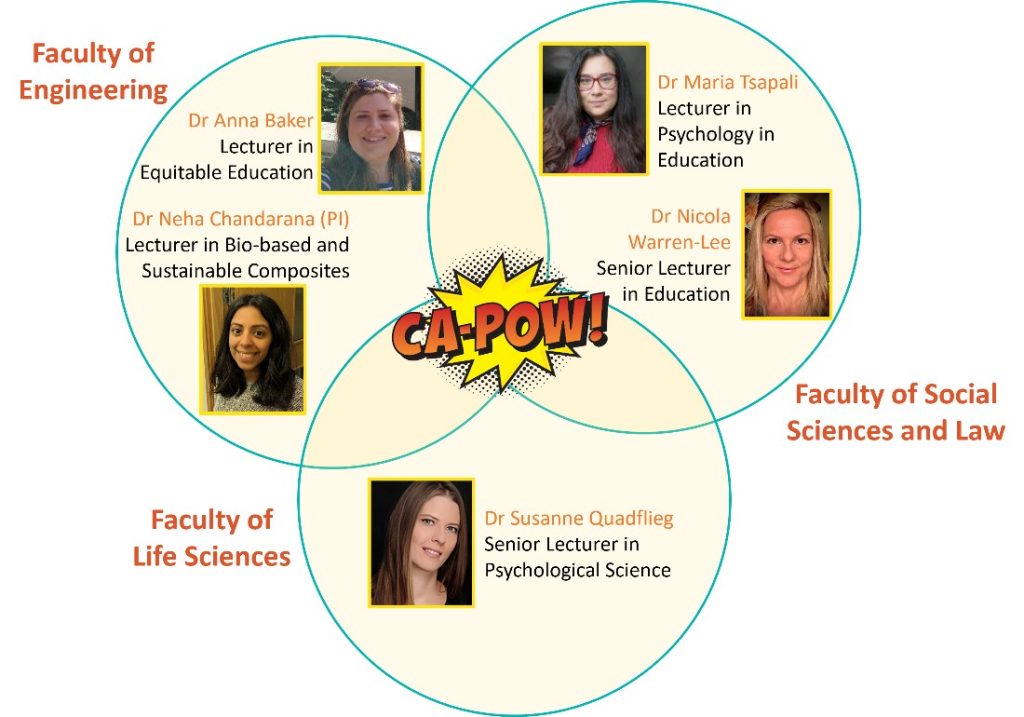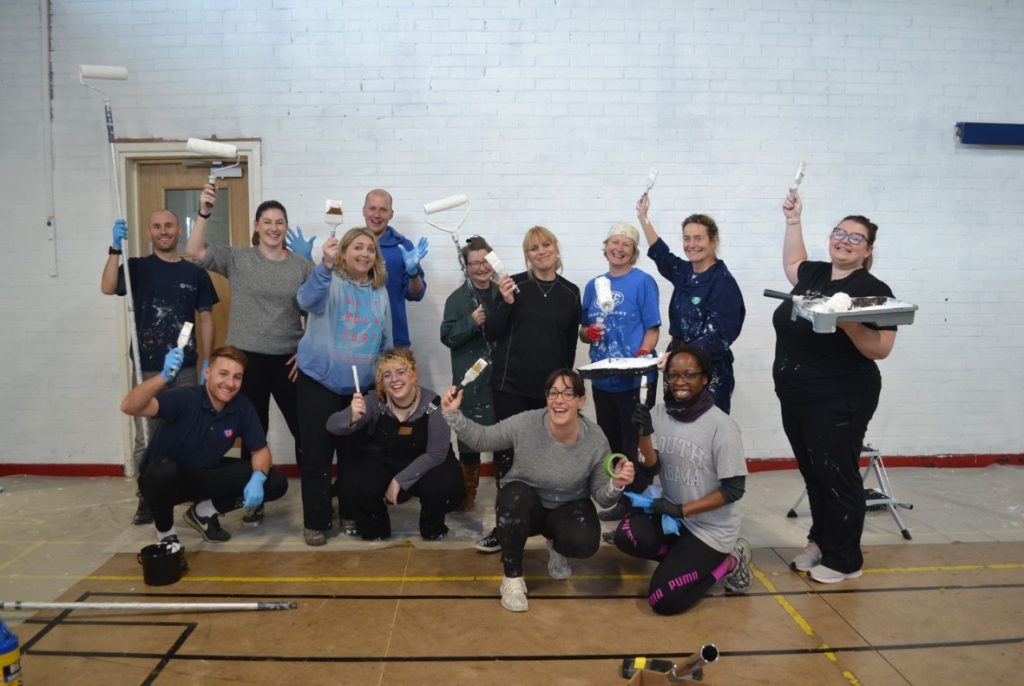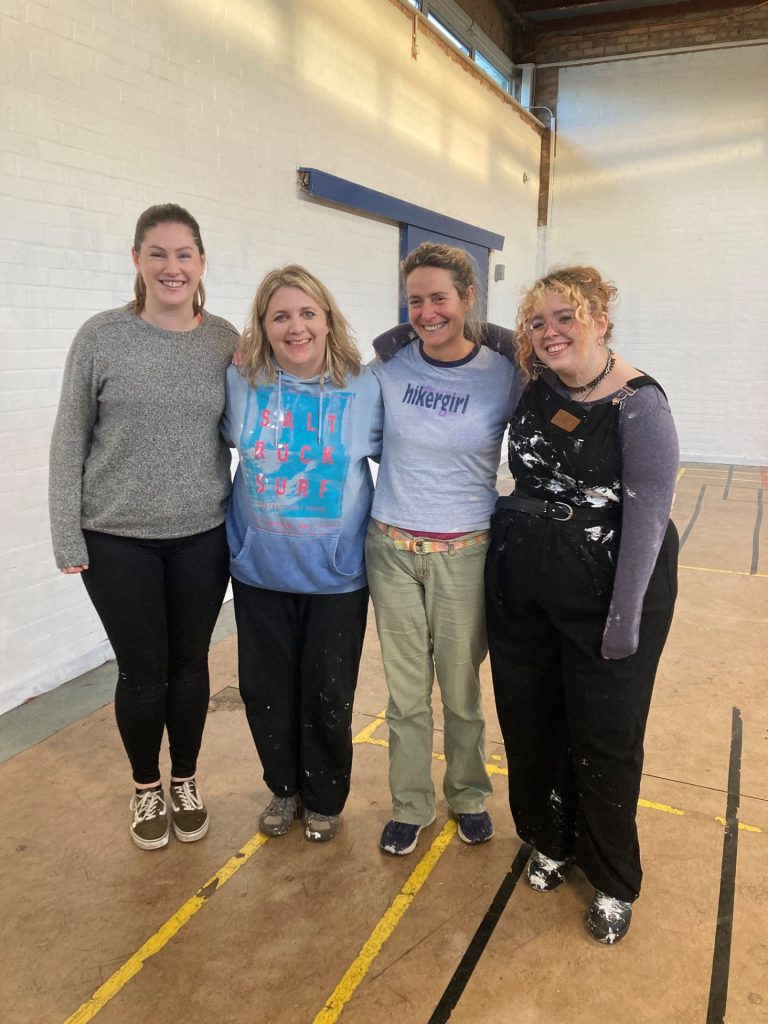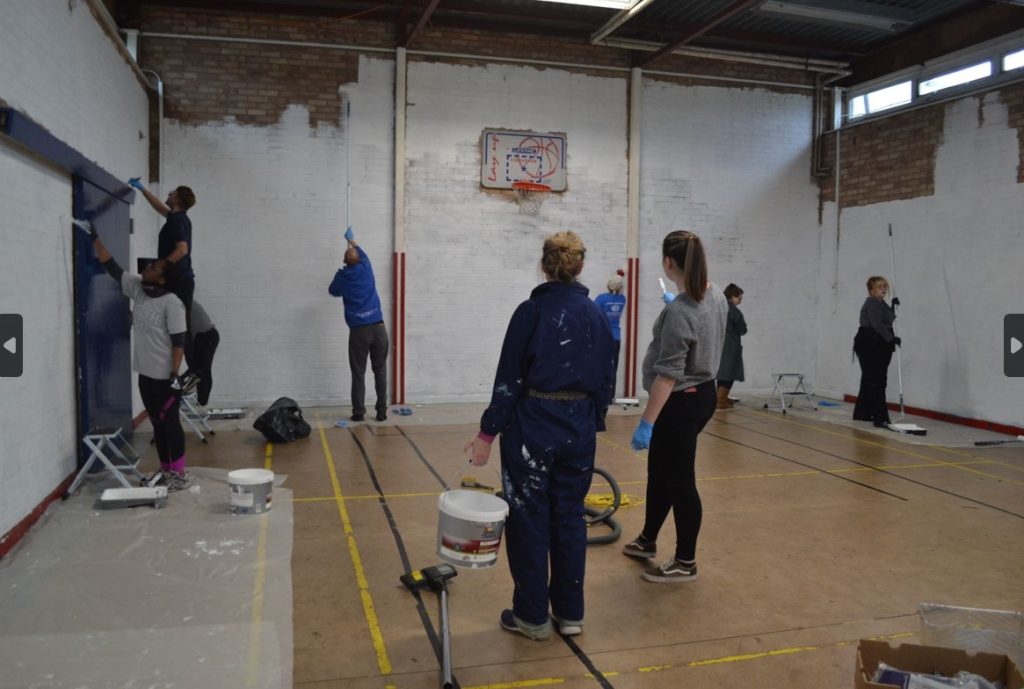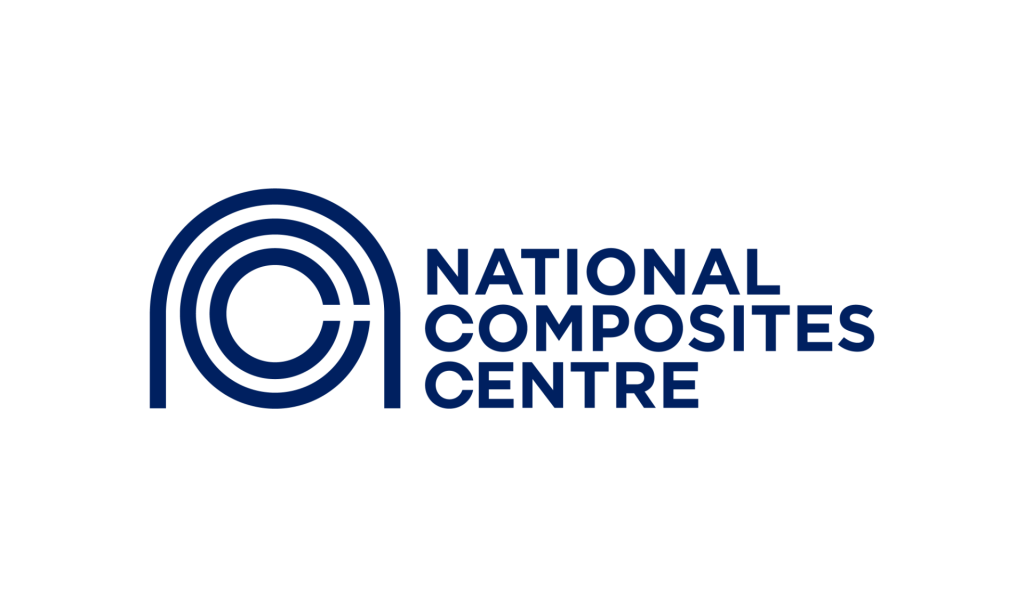We are pleased to announce an impressive line up of academics, researchers and PhD students from the Bristol Composites Institute (BCI) who will be presenting their latest work at ECCM 20 (the 20th European Conference on Composite Materials) in Lausanne, Switzerland from 26th to 30th June 2022.
This year’s conference is on the theme of “Composites meet Sustainability” and we will highlight our commitment toward sustainability across a range of activities spanning academic research, industrial collaborations and education programmes.
Our Industrial Doctorate Centre (IDC) in Composites Manufacture is also hosting a special session! The IDC aims to provide the UK composites manufacturing industry with Research Engineers equipped with the necessary advanced technical and leadership skills required for effective adoption of new knowledge and technologies in composites manufacture. For more details and informal discussion please contact Professor Janice Barton (janice.barton@bristol.ac.uk) at booth #6 during the conference. Details of speakers at the session can be found here.
Monday 27 June BCI speaker line-up:
Garden 1 / 11:30 – speaker: Nguyen DUC (62031). Title: Real-time Material Measurement for Automated Fibre Placement.
Garden 4 / 11:30 – speaker: Mudan CHEN (61809). Title: Experimental study on the mechanical
behaviour of carbon-fibre Z-pin reinforced curved composite laminates under four-point bending.
Garden 3 / 12:45 – speaker: Ganapathi AMMASAI SENGODAN (61675). Title: Hygro-thermal effects on the translaminar fracture toughness of composite laminates.
Garden 8 / 15:30 – speaker: Athina Kontopoulou (61936). Title: Shape and Size Optimization of Additive Manufactured Lattice Cores with an Evolutionary-Based Approach for High Performance Sandwich Panels.
Garden 4 / 17:00 – speaker Chantal LEWIS (61681). Title: An investigation into the performance is ADFRC produced with HiPerDiF 3G.
Garden 4 / 17:15 – speaker: Gustavo QUINO (61865). Title: Design of a bending experiment for mechanical characterisation of pultruded rods under compression.
Garden 6 / 17:15 – speaker: Roy BULLOCK (61961). Title: Ply Orientation Effects in Multidirectional Carbon/ Epoxy Open-Hole Specimens Subjected to Shear Loading.
Garden 7 / 18:30 – speaker: Xiaoyang SUN (61857). Title: An Experimental Study of Crack Propagation in Stiffened Over-height Compact Tension (SOCT) Specimens.
Garden 6 / 18:45 – speaker: Neha CHANDARANA (62343). Title: Damage characterisation in open-hole composites using acoustic emission and finite element, validated by X-ray CT.
Tuesday 28 June BCI speaker line-up:
Garden 10 / 10:30 – speaker: Pedro GALVEZ-HERNANDEZ (61642). Title: Uncured out-of-autoclave composite prepregs characterizations via deep learning.
Garden 8 / 11:45 – speaker: Tobias LAUX (62344). Title: Hybrid testing for composite substructures.
Keynote Lecture 4 / 14:00 – speaker: Prof. Ivana Partridge. Title: Toughening approaches in composites – a perspective.
Garden 5 / 14:30 – speaker: Aewis HII (62521). Title: Development of a Concurrent Multi-scale Analysis Framework using Shell Elements for the Progressive Failure Analysis of Composites.
Garden 9 / 14:30 – speaker: Joseph SOLTAN (62424). Title: Modular Infusion: Novel Approaches to Segregation and Control of Flow Fronts Within Liquid Resin Moulding.
Garden 9 / 14:45 – speaker: Laura Rhian PICKARD (62302).Title: Manufacturing Advances for Pultruded Rod Based Structural Members and Thick Ply Systems.
Garden 7 / 17:30 – speaker: Antonio MELRO (62388). Title: Modelling delamination resistance of
composite laminates reinforced with novel z-pins through an energy-equivalent bridging map
formulation.
Garden 1 / 18:00 – speaker: Axel WOWOGO (61636). Title: Influence of Automated Fibre Placement processing parameters on the consolidation of out-of-autoclave prepreg.
Garden 9 / 18:15 – speaker: Janice BARTON (62222). Title: A new test for validating models of lightning strike damage on CFRP laminates.
Garden 10 / 18:15 – speaker: Narongkorn KRAJANGSAWASDI (61680). Title: Highly Aligned Discontinuous Fibre Composite Filaments for Fused Deposition Modelling: Comparison between printed and lay-up open-hole sample.
Wednesday 29 June BCI line-up:
Garden 4 / 10:15 – speaker: Ali KANDEMIR (61786). Title: Interfacial shear strength of flax fibre with sustainable matrices.
Garden 4 / 10:30 – speaker: Stephen Hallett (61654). Title: :Novel Z-pin Technologies for Through Thickness Reinforcements.
Garden 5 / 10:30 – speaker Xun WU (61812). Title: Improved Energy Absorption of Novel Hybrid Configurations Under Static Indentation
Garden 7 / 11:45 – speaker: Ram KARTHIK RAMAKRISHNAN (66298). Title: Combined DIC-Infrared thermography for high strain rate testing of composites.
Garden 7 / 14:30 – speaker: Eduardo SANTANA DE VEGA (62438). Title: Improving the mode II delamination bridging performance of fibrous composite Z-pins.
Garden 4 / 17:00 – Ogun YAVUZ BURAK (62348). Title: Tensile characterisation of HiPerDiF PLA/Carbon fibre tape under processing conditions.
Garden 5 / 18:00 – speaker: Anatoly Koptelov (61710). Title: A novel closed-loop testing framework for decoding consolidation deformation mechanisms in manufacturing.
Poster session – David LANGSTON (62605). Title: Torsional Testing of Wind Turbine Blades.
Thursday 30 June BCI speaker line-up:
Garden 7 / 08:30 – speaker: Katherine NELMS (62050). Title: Effect of fiber microstructure on kinking in unidirectional fiber reinforced composites imaged in real time under axial compression.
Garden 8 / 08:45 – speaker: Ole THOMSEN (62400). Title: Validation of Composite Aerostructures through Integrated Multi-Scale Modelling and High-Fidelity Substructure Testing Facilitated by Design of Experiments and Bayesian learning.
Campus A / 09:00 – speaker: Rafael Ruiz Iglesias (62267). Title: Surface and subsurface damage assessment of multi[1]directional composite laminates utilizing a full field imaging technique.
Campus A / 09:45 – speaker: Geir Olafsson (61847). Title: Assessment of complex structural scale composite structures by adapting thermoelastic stress analysis for 3D perspective imaging.
Don’t miss the latest news and updates from the ECCM Conference via the Bristol Composites Institute Twitter account: @UoBrisComposite!
